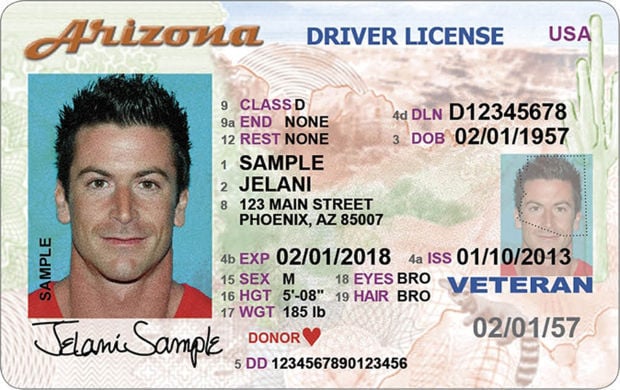PHOENIX — State officials are taking the first steps to ensure Arizonans are not denied access to commercial flights next year: Asking the U.S. Department of Homeland Security for a waiver for Arizona residents from a requirement that they have a special secure license to board.
But the sponsor of state legislation mandating the request fully expects it to be rejected. And that’s OK, said Sen. Bob Worsley, R-Mesa, because it’s all according to plan.
In a letter to the federal agency, John Halikowski, director of the Arizona Department of Transportation, formally requested a waiver from the requirements of the Real ID Act of 2005. That law requires states to have driver’s licenses that comply with certain security requirements.
Nothing in the federal law can force Arizona to comply. And state legislators passed a law in 2008 barring ADOT from producing a Real ID-compliant license.
But now Homeland Security has said it will begin enforcing a key provision of that federal law in January, allowing people to board aircraft only if they first show an identification the agency has decided is “secure.” Arizona licenses are not.
That would leave Arizonans having to obtain a passport and carry it on all flights as the only other viable option. Inconvenience aside, a passport costs $110 plus a $25 application fee; expedited consideration adds another $60.
The legislation crafted by Worsley requires ADOT to create a license that meets the federal requirements under the Real ID Act. The measure was signed into law last month by Gov. Doug Ducey.
To keep from running afoul of the 2008 prohibition, though, the new law makes acquiring one of those new licenses optional. It also authorizes ADOT to impose an additional charge on top of standard fees.
Worsley, in a preemptive strike to blunt possible criticism, included a provision in the law that says the new Arizona licenses cannot use RFID technology.
That refers to “radio frequency identification,” essentially a way the license and its contents can be read remotely by someone with the necessary equipment. Such technology also would allow people to track the location and movements of the person who has the license.
But Worsley had to agree to one more provision to get the necessary votes: ADOT can issue the new licenses only if it requests a waiver from Homeland Security — and only if the waiver is denied.
Worsley has said he has no reason to believe the waiver will be granted, especially because Arizona has not made the slightest effort to comply with the federal law. And no other state in that situation has received a waiver.
What Worsley is hoping is the denial is quick, providing the go-ahead for ADOT to start the necessary work.
Creating a Real ID-compliant license is more than about the physical security of the document to ensure it cannot be counterfeited or altered. It also will require ADOT to verify the authenticity of documents presented by those who apply.
ADOT spokesman Ryan Harding said Wednesday that the details of what Arizona will have to do to create a compliant license will have to wait until the waiver is denied and the state begins talks with Homeland Security.
The 2008 ban was approved amid concerns that Real ID-compliant licenses would essentially become a national identification card, with all of the drawbacks that would bring.
Karen Johnson, then a state senator from Mesa, said she worried about not just the documents that ADOT would have to review, but the fact that it would have to check the documents’ authenticity through various databases. That, she said, would put information within reach of people who could hack into computer systems.
Calls to Homeland Security with questions about the waiver process were not immediately returned.
The fee for the new license will be set by the Motor Vehicle Division but is estimated to be in the $15 range. That would be on top of current fees, which are on a sliding scale based on age, with the most expensive priced at $25 for those ages 16 through 39, going down to $10 for those over 50.





